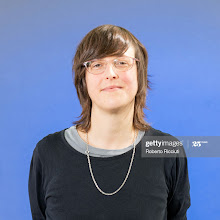Looking back, 1979 now emerges as a pivotal year in the recent history of our species. On 6 October this year the US central bank, the Federal Reserve, increased interest rates by 20 points (Fisher 2009, p.33). This act, which on paper appears of little significance, opened the gates to a whole new breed of free-market capitalism which, as a result of reduced regulation, would spread its way all over the globe. It signified the switch between Fordism and post-Fordism as the predominant economic system of production; from the ‘disciplinary societies’ of late modernism characterised by Foucault, to the ‘Control societies’ which constitute our present reality (Deleuze 1990). It was the beginning of a carefully choreographed and intricately planned neoliberal project, which would serve the “restoration or reconstitution of naked class power” (Harvey 2007, p.119) to an economic elite; radically transforming the way in which all our lives would operate in its wake. Our attitudes towards work, politics, society; our relationships to one another, even the internal structuring of our own minds, would never be the same again.
It is no coincidence that it was on 4 May 1979 that Margaret Thatcher came to power in the United Kingdom; she was, of course, instrumental in overseeing this ‘revolution’. What is coincidental however is that it was also in 1979, on 11 March to be precise, that my own life began its trajectory. The rapidly changing society into which I was born would not only prove fundamental in shaping the artist I would become, but it would also prove key in determining the ‘mentality’ with which I would come to visualise my future: to plan my career.
How to Reconcile the Careerist Mentality with Our Impending Doom
By Ellie Harrison
May 2010
Contents
- Preface
- Global Warming Projection
- Setting the Scene
- The Careerist Mentality
- Our Impending Doom
- A Rude Awakening
- Now or Never
- Atomised Art World
- Free Our Minds
- Outside the Bubble
- Plan of Action
- New Moral Code
- Clandestine Insurgence
- Alternative Knowledge
- Practical Solutions
- Multi-Pronged Approach
- A Reconciled Practice
- Our Fully Functional Role
- References
